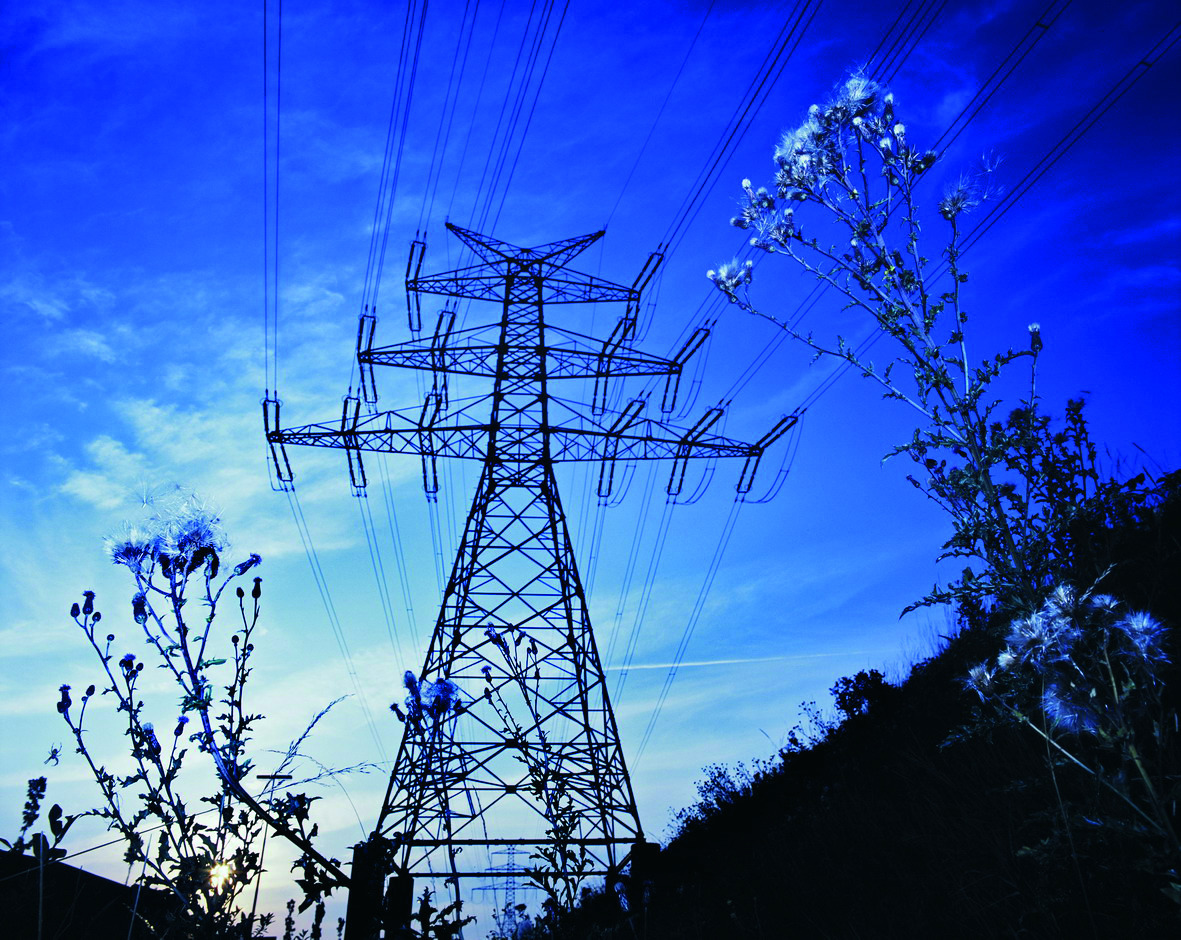Kategorie: ‘Energie und Umwelt’
Resilienz durch Autonomie: Das Stromnetz der Zukunft
Die Energiewende verändert unsere Stromversorgung grundlegend. Während konventionelle Kraftwerke das Netz über Jahrzehnte stabilisiert haben, sorgen volatile Quellen wie Wind und Sonne für völlig neue Herausforderungen. Ereignisse wie der Angriff auf die Stromversorgung in Berlin Anfang 2026 zeigen deutlich: Unsere aktuellen, starr synchronisierten Netze sind verwundbar.
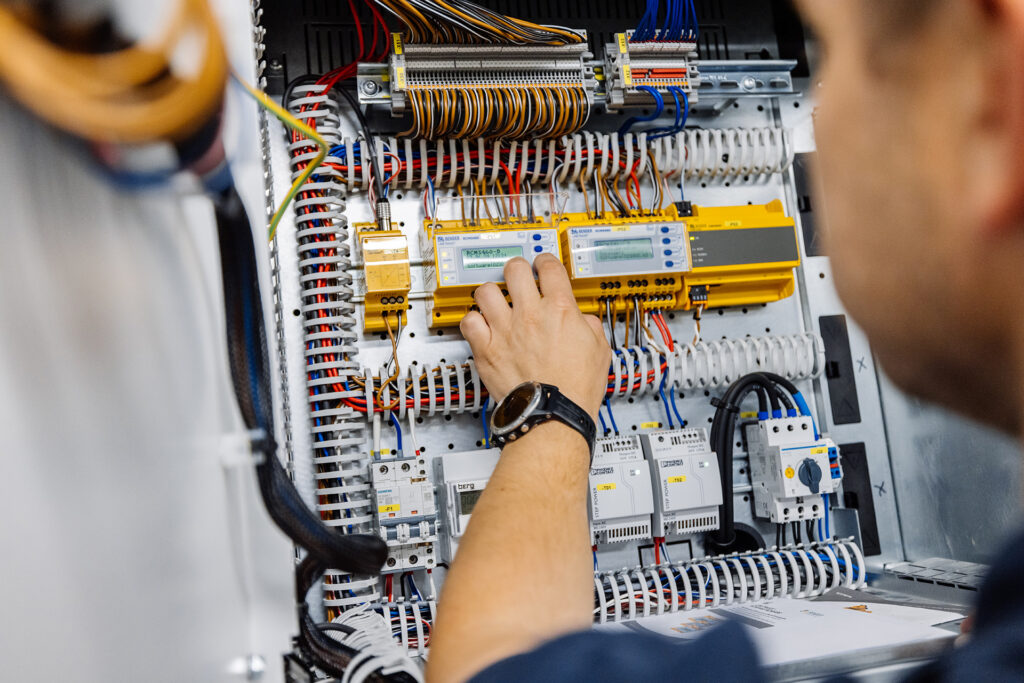
Martin Braun
Ein Forschungsteam unserer Fakultät unter der Leitung von Professor Antonello Monti, Direktor des Instituts für Automation komplexer Stromversorgungssysteme (ACS), hat gemeinsam mit der Aalborg University einen wegweisenden Ansatz in „Nature Reviews Electrical Engineering“ veröffentlicht. Die zentrale Idee: Das Stromnetz sollte nicht länger als eine einzige synchrone Einheit fungieren, sondern dem Vorbild des Internets folgen. Durch die Aufteilung in kleinere, autonome Teilnetze, die asynchron miteinander gekoppelt sind, wird das Gesamtsystem robust gegenüber großflächigen Störungen.
Dieses Konzept bildet die wissenschaftliche Grundlage für das von der RWTH koordinierte Projekt SAFEr Grid (ERC Synergy Grant). Anstatt allein auf massiven Netzausbau zu setzen, nutzt das Team um Professor Monti moderne Leistungselektronik, um Schwankungen flexibel auszugleichen und die Versorgungssicherheit langfristig zu garantieren.
Visibility für Spitzenforschung: Professor Weihan Li erneut unter den meistzitierten Forschenden
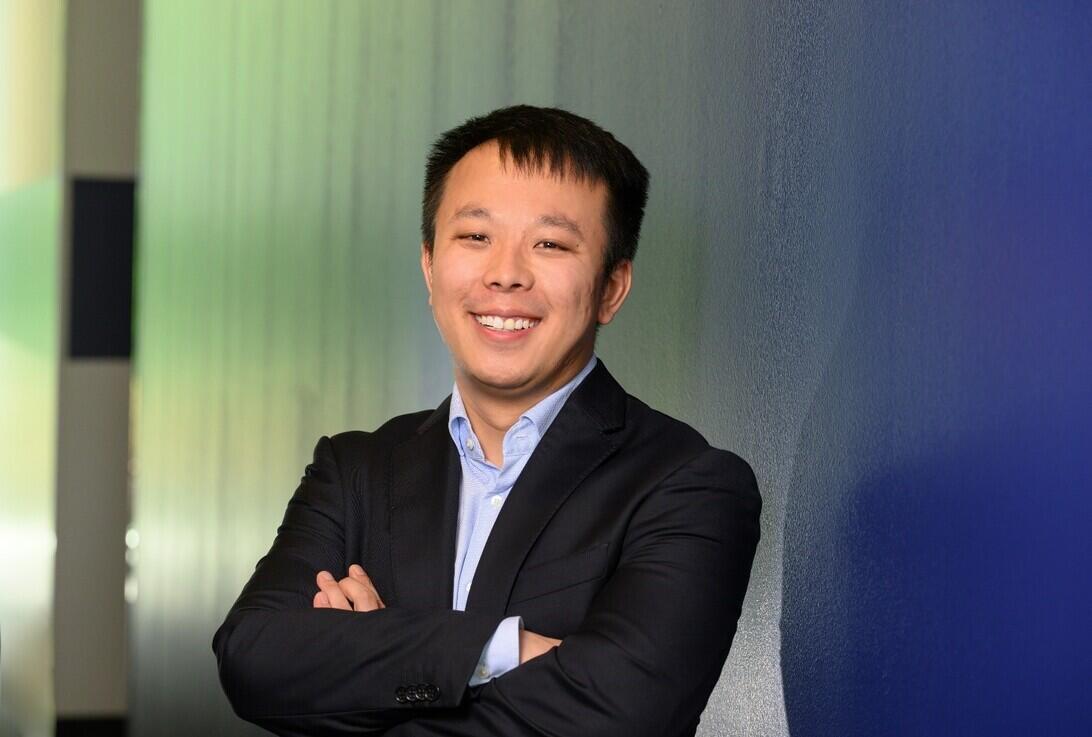
Professor Weihan Li, Inhaber der Juniorprofessur für „Artificial Intelligence and Digitalization for Batteries”. © David Ausserhofer
Professor Li vom Institut für Stromrichtertechnik und Elektrische Antriebe (ISEA) der RWTH Aachen University wurde erneut in die Liste der weltweit meistzitierten Wissenschaftler, den sogenannten „Highly Cited Researchers”, aufgenommen. Seine Arbeiten im Bereich der KI-gestützten Batterieforschung zählen demnach zu den einflussreichsten Publikationen weltweit.
Die Liste der „Highly Cited Researchers” wird jährlich von Clarivate Analytics veröffentlicht. Sie basiert auf dem Zitationsindex der Web of Science Core Collection und identifiziert Wissenschaftler:innen, deren Publikationen zu den meistzitierten ein Prozent ihres Fachgebiets und Publikationsjahres gehören. Zitationen fungieren in wissenschaftlichen Kontexten als Indikatoren für die Relevanz von Publikationen und werden als Maßstab für die Qualität der Arbeiten betrachtet. Die Sichtbarkeit eines Textes und damit auch die weltweite Wahrnehmung des Autors steigt mit der Häufigkeit seiner Zitierung. In der aktuellen Liste werden 7.131 Forschende aufgeführt, die nach Ansicht der Datenbank zu den einflussreichsten 0,1 Prozent der internationalen Forschungsgemeinschaft zählen.
Batterien stellen eine zentrale Technologie im Rahmen der Energiewende dar. Ihre Leistung ist maßgeblich für die Reichweite, die Sicherheit, die Lebensdauer und die Kosten während ihrer technischen Anwendungen verantwortlich. Professor Li untersucht, inwiefern sich Zustand und Leistungsfähigkeit von Batteriezellen bereits während der Produktion präzise prognostizieren lassen. Seit März 2025 hat er die Juniorprofessur für „Artificial Intelligence and Digitalization for Batteries“ an der RWTH Aachen inne. Seine Nachwuchsgruppe am Center for Ageing, Reliability and Lifetime Prediction of Electrochemical and Power Electronic Systems (CARL) entwickelt datenbasierte Modelle, digitale Zwillinge und automatisierte Diagnoseverfahren.
Das Ziel bestehe darin, der Batterie die Fähigkeit zur digitalen Kommunikation zu vermitteln, die durch Präzision und Echtzeitfähigkeit gekennzeichnet ist – an dieser Zukunft arbeitet Weihan Li.
Dabei wird sein Projekt „SPEED”: Schnelle Charakterisierung der Leistungsfähigkeit von Lithium-Ionen-Batterien aus der Produktionslinie mit maschinellem Lernen durch eine Förderung des Bundesministeriums für Forschung, Technologie und Raumfahrt in Höhe von 1,85 Millionen Euro im Rahmen des Wettbewerbs „BattFutur – Nachwuchsgruppe Batterieforschung” unterstützt.
Professor Li wurde in China geboren, schloss sein Studium der Fahrzeugtechnik an der Tongji University ab und kam 2014 an die RWTH Aachen, um den Master in Elektrotechnik und Informationstechnik und die Promotion am Institut für Stromrichtertechnik und Elektrische Antriebe (ISEA) zu absolvieren. Forschungsaufenthalte führten ihn an das Imperial College London, die University of Oxford und das Massachusetts Institute of Technology (MIT). Im Jahr 2021 schloss er seine Promotion mit Auszeichnung ab und gründete im darauffolgenden Jahr die Nachwuchsgruppe „Artificial Intelligence for Batteries“, die er auf 13 Doktorandinnen und Doktoranden ausbaute, unterstützt durch Industriekooperationen (ca. 40 % der Drittmittel) und die Infrastruktur des CARL mit über 6.000 Testkreisen, die eine verlässliche Datenbasis für die Modellierung mit KI liefern.
Der Wissenschaftler kann mittlerweile auf eine Reihe von Auszeichnungen und Preisen zurückblicken, darunter der Deutsche Studienpreis der Körber-Stiftung, der zu den höchstdotierten Preisen für Nachwuchswissenschaftler:innen in Deutschland zählt. Seine Publikationen umfassen 53 wissenschaftliche Artikel, zwei Monographien, drei Patente und über 40 betreute Abschlussarbeiten.
Für weiterführende Informationen bezüglich der Forschung sowie des Werdegangs von Professor Weihan Li sei auch auf die Website der RWTH Aachen University verwiesen.
Energie neu denken – im Gespräch mit Prof. Dirk Uwe Sauer
Im Rahmen der RWTH-Interviewreihe „Große Fragen“ spricht Prof. Dirk Uwe Sauer, Leiter des Instituts für Elektrochemische Energiewandlung und Speichersystemtechnik (ISEA) an der Fakultät für Elektrotechnik und Informationstechnik, über die Energiewende, technische Lösungen und die Verantwortung von Wissenschaft und Politik.Prof. Sauer forscht seit vielen Jahren an Batteriesystemtechnik, Energiespeichern und der Integration erneuerbarer Energien – zentrale Themen für die klimaneutrale Zukunft.
Das vollständige Gespräch ist unten im Original wiedergegeben.
Ein begleitendes Video anlässlich der Verleihung des NRW-Innovationspreises gibt zudem Einblicke in seine Arbeit und Motivation:
🎥 Zum Video auf YouTube
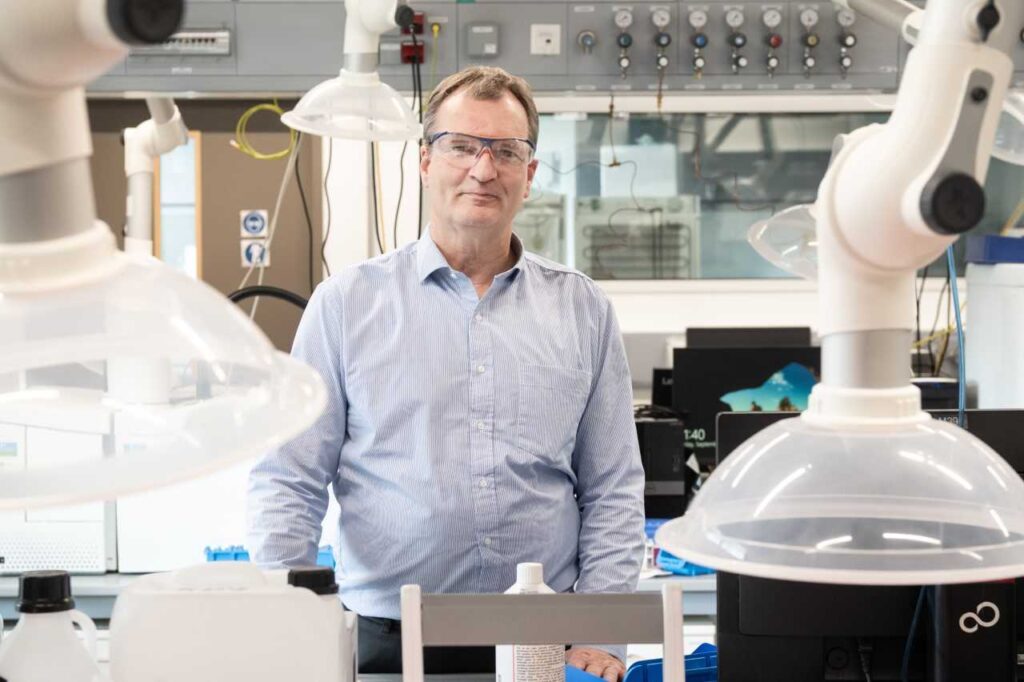
Foto: Heike Lachmann / RWTH Aachen University
Energiewende – Was bedeutet das?
Professor Dirk Uwe Sauer: Es bedeutet, dass wir aufhören müssen, fossile Energieträger zu nutzen. Diese werden nicht nur für Strom und Heizung verwendet, sondern auch stark in der chemischen Industrie. Durch die Nutzung dieser seit Millionen Jahren eingelagerten kohlenstoffhaltigen Stoffe erhöhen wir den CO2-Gehalt in der Atmosphäre, was zur Klimaerwärmung führt. Die Energiewende machen wir nicht aus Spaß oder weil die fossilen Energieträger bald aufgebraucht sind – wie der Club of Rome um 1970 noch annahm. Vielmehr müssen wir sie im Boden lassen, um das Klima beherrschbar zu halten. Dies erfordert eine fundamentale Transformation unseres gesamten Gemeinwesens. Betroffen sind Stromerzeugung, Mobilität, Industrie und alle Privathaushalte mit ihren Heizungssystemen. Auch weltweite Handelsströme stehen vor Veränderungen, insbesondere durch die Verschiebung von Abhängigkeiten beim Einkauf von Energieträgern. Für viele Länder, deren Wirtschaft auf der Förderung und dem Export fossiler Energieträger basiert, stellt dies eine dramatische Herausforderung dar.
Jetzt geht es um schnelles Handeln…
Sauer: Genau, wir sind spät dran. Die Folgen des Klimawandels sind bereits sichtbar und treten schneller und heftiger ein als von Klimamodellen im Mittel vorhergesagt. Wir bewegen uns in den Worst-Case-Szenarien. Die Gefahren sind enorm: Neben vermehrten Extremwetterereignissen gibt es bereits große Auswirkungen auf die Biodiversität. Auch die Abschwächung des Golfstroms ist möglich, was unumkehrbare dramatische Folgen für unser Klima hätte. Der Anstieg des Meeresspiegels schreitet durch das Abtauen von Gletschern und Eisschilden voran, beispielsweise auf Grönland und in der Antarktis, aber auch durch die Ausdehnung des Wassers durch Erwärmung. Inzwischen werden Temperaturanstiege bereits bis 2050 um 3 Grad gegenüber der vorindustriellen Zeit für möglich gehalten. Mitteleuropa wird sich dabei zunächst stärker erwärmen als die Welt im Mittel. Daher dürfen wir bei der wichtigsten Maßnahme gegen den Klimawandel keine Zeit verlieren: Die Nutzung fossiler kohlenstoffhaltiger Energieträger muss schnellstmöglich beendet werden. Das Positive ist, dass wir durch 30 bis 40 Jahre Forschung und Entwicklung Lösungen haben. Jetzt geht es darum, diese mit der nötigen Geschwindigkeit umzusetzen.
Was tragen Sie persönlich zur Energiewende bei?
Sauer: Ich habe vor 35 Jahren Physik studiert, mit dem klaren Ziel, im Bereich nachhaltiger Energie zu arbeiten. Das ist für mich nicht nur ein Beruf, sondern eine Berufung. Seit 1992 bin ich kontinuierlich im Bereich Energiewende und Energiesystemtransformation tätig, mit einem Schwerpunkt auf Energiespeichern, insbesondere Batterien. Seit etwa 13 Jahren engagiere ich mich in der Politikberatung über die nationalen Wissenschaftsakademien. Dabei versuchen wir interdisziplinär, die Politik wissenschaftlich zu beraten. Leider werden unsere Vorschläge oft nur begrenzt angenommen, was frustrierend sein kann – besonders, wenn vorhergesagte Probleme später tatsächlich eintreten.
Wer leistet Widerstand gegen Ihre Vorhersagen und warum?
Sauer: Wenn wir das so genau wüssten… Die Industrie leistet heute kaum noch Widerstand. Früher gab es noch deutliche Gegenwehr, wie etwa Anfang der 2000er Jahre, als Netzbetreiber vor dem Zusammenbruch der Stromnetze bei mehr als 2 bis 3 Gigawatt Windenergie warnten – heute haben wir 50 Gigawatt bei höchster Netzstabilität. Die Automobilhersteller wissen ebenfalls, wohin die Entwicklung geht, selbst wenn sie als börsennotierte Unternehmen ihr bisheriges Geschäftsmodell noch möglichst lange aufrechterhalten wollen. Das Frustrierende kommt eher aus der Politik: Trotz klarer Vorgaben, auch auf EU-Ebene, gibt es aus politischem Kalkül Gegenkampagnen, etwa gegen Wärmepumpen oder Elektromobilität. Diese Verunsicherung schadet der wirtschaftlichen Entwicklung. Die Wirtschaft braucht klare, für alle gleiche Ziele – auch für Importeure. Zum Beispiel bei der sauberen Batterieproduktion, beim Recycling oder bei der CO2-freien Stahlherstellung. Besonders konservative politische Kräfte verhindern oft, dass vorhandene Möglichkeiten ausgeschöpft werden. Das wirft uns wirtschaftlich zurück. Obwohl wir beste Voraussetzungen hätten, die neue Energiewelt zu entwickeln, ziehen andere Länder an uns vorbei, allen voran China.
Woran arbeiten Sie in Ihrem Institut?
Sauer: Wir arbeiten an der Elektrifizierung verschiedener Mobilitätsbereiche, von Fahrzeugen über LKW und Busse bis hin zu Bau- und Bergbaumaschinen, Flugzeugen und Schiffen. Parallel dazu ist die Integration erneuerbarer Energien durch stationäre Speicher wichtig. Über zwei Millionen Menschen haben bereits eine Photovoltaikanlage mit Batteriespeicher zu Hause. Wir betreiben seit acht Jahren eine große Batteriespeicheranlage, die wir an der Strombörse handeln, um die fluktuierende Stromerzeugung aus Wind- und Photovoltaikanlagen besser ins System zu integrieren. Die Zukunft der Energieversorgung wird hauptsächlich von Wind- und Photovoltaikanlagen bestimmt. Ein fundamentaler Systemwechsel: Bisher wurden Kraftwerke nach Bedarf geregelt, aber Wind- und Solaranlagen können nicht beliebig hochgefahren werden. Deshalb brauchen wir intelligente Lösungen wie Batteriespeicher und Lastmanagement.
Wie sähen solche intelligenten Lösungen aus?
Sauer: Ein wichtiges Beispiel ist das Management von Elektrofahrzeugen: Diese sollten insbesondere im Sommer idealerweise tagsüber mit Photovoltaik-Strom geladen werden. Die Batteriekapazitäten der E-Autos sind beachtlich, 60 bis 100 Kilowattstunden, während ein durchschnittlicher Haushalt nur etwa 10 Kilowattstunden pro Tag verbraucht. Da Autos im Schnitt nur 37 Kilometer täglich fahren, könnte die überschüssige Batteriekapazität für die Stromnetzstabilisierung genutzt werden – eine wirtschaftlich interessante Option, da die Batterien ohnehin schon für das Auto bezahlt sind.
Das heißt, es müsste Entladestationen für Autos geben?
Sauer: Genau, wir nennen das bidirektionale Ladepunkte mit der Möglichkeit, den Strom auch zurückzuspeisen. In einigen Ländern ist diese Technologie bereits stärker verbreitet. In Deutschland scheitert die Umsetzung jedoch noch oft an regulatorischen Hürden. Besonders bei den intelligenten Zählsystemen liegen wir seit über zehn Jahren hinter den EU-Vorgaben und vielen anderen europäischen Ländern zurück. Trotz dieser verschiedenen Hindernisse ist die technische Umsetzung definitiv möglich.
Wo steht Deutschland generell im Vergleich?
Sauer: Die Selbsteinschätzung der Deutschen, wir seien Vorreiter im Klimaschutz und würden damit unsere Industrie gefährden, ist an vielen Stellen leider falsch. Als Beispiel: Bei Stadtbussen waren in mehreren europäischen Ländern letztes Jahr 100 Prozent der Neuanschaffungen batterieelektrisch, in Deutschland lag der Anteil von Batterie- und Brennstoffzellenantrieben zusammen unter einem Drittel. Bei Wind- und Photovoltaik-Stromerzeugung haben wir zwar viel erreicht, aber die aktuelle Regierung scheint hier wieder bremsen zu wollen. Die größten Ausbauraten hat China. Dort wächst der jährliche Zusatz-Strombedarf um etwa drei Viertel des gesamten deutschen Stromverbrauchs, jährlich. China schafft es, diesen zusätzlichen Bedarf komplett aus CO2-freien Technologien zu decken, davon 80 bis 90 Prozent aus Wind und Photovoltaik, dazu kleine Anteile aus Wasserkraft und Atomkraft.
Haben die Chinesen freie Bahn und ziehen alles durch?
Sauer: Ja genau, vor allem aus wirtschaftlichen Gründen. Sie wissen, dass sie durch den Ausbau dieser Technologien ihre Produktion und Qualität verbessern und damit den Weltmarkt zunehmend beherrschen können. Strom aus Wind und Sonne ist einfach der günstigste Weg für China den großen Bedarf an Strom zu decken. Mehr oder weniger nebenbei erreichen sie dabei auch selbst gesteckten Ziele zur Begrenzung der CO2-Emissionen, mehrere Jahre früher als vorgesehen. Das ist gut für das Klima, aber der Haupttreiber für China sind kostengünstiger Strom und Führerschaft in Technologie und Produktion. Photovoltaikmodule kommen heute fast alle von dort. Bei Windkraftanlagen ist es noch diverser, aber wenn wir in Deutschland und Europa keinen entsprechenden Absatzmarkt halten können, wird es schwer, heimische Unternehmen zu behalten.
Inwiefern?
Sauer: Beharrungskräfte sind teilweise verständlich: Für etablierte Autohersteller mit 200.000 Beschäftigten ist die Transformation schwieriger als für Tesla als Neueinsteiger. Wenn 5000 Entwickler an Verbrennungsmotoren arbeiten, ist es schon rein menschlich für einen CEO schwierig zu sagen, dass dies nicht die Zukunft ist. Die Transformation braucht Zeit, aber klare Ziele sind wichtig. Durch politisches „Geeiere“ hat uns China bei der Elektromobilität überholt. Batterien kommen zu fast 100 Prozent aus Asien. Es gibt einige europäische Fabriken, aber die gehören dann den Asiaten. Nur Volkswagen und Stellantis (u.a. Peugeot, Opel, Fiat) mit Mercedes und Saft versuchen noch, eigene Technologiesouveränität in Europa durch den Aufbau von Batteriezellfertigungsanlage zu erreichen. Durch zu langes Zögern sind wir da sehr in den Rückstand geraten.
Wie sieht es hier bei uns in Nordrhein-Westfalen aus?
Sauer: Nordrhein-Westfalen zeigt, wie Transformation gelingen kann – das Land hat sich über 50 Jahren stetig verändert und ist dadurch optimistischer als südliche Bundesländer mit starker Automobilindustrie. Die Menschen sind technologieoffener, neue Übertragungsnetze sind leichter zu bauen. Selbst Braunkohletagebau mit Dorfabbaggerung stieß auf relativ wenig Protest, weil klar ist, dass Wohlstand auch erwirtschaftet werden muss. Die aktuelle Landesregierung will 1000 neue Windkraftanlagen bauen, was anfangs belächelt wurde. Aber durch richtige und kluge regulatorische und gesetzgeberische Maßnahmen läuft der Ausbau mit rund 100 neuen Anlagen alleine im ersten Halbjahr 2025 gut.
Gibt es international weitere Vorbild-Länder?
Sauer: Norwegen erreicht in diesem Jahr fast 100 Prozent Neuwagenverkäufe mit vollelektrischen Fahrzeugen. Viele glauben, dass Elektroautos bei Kälte oder in bergigen Regionen problematisch sind, aber in Norwegen, wo es kälter und bergiger ist als bei uns, funktioniert es gut. Auch Länder, die im öffentlichen Nahverkehr auf 100 Prozent umgestellt haben, zeigen, dass es möglich ist. In Skandinavien wird seit langem auf Wärmepumpen gesetzt, trotz der niedrigeren Temperaturen. Spanien ist im Ausbau erneuerbarer Energien stark, insbesondere bei Wind und Photovoltaik. Es ist schwierig zu sagen, dass ein Land alles perfekt umsetzt. Die genannten Beispiele zeigen jedoch, dass viele Vorurteile, die oft von politischen oder medialen Interessengruppen geschürt werden, nicht zutreffen. Positive Beispiele erreichen die Bevölkerung nur schwer, während negative Argumente viel schneller verbreitet werden. Das stellt ein großes Problem für die Einführung neuer Technologien dar.
Was hätte man generell besser machen können?
Sauer: Bei allen Projekten, bei denen in Städten die Straßen für Kabel, Wasserleitungen und Kanäle aufgerissen werden, hätten wir schon längst stärkere Stromkabel mitverlegen sollen. 90 Prozent der Stromnetzkosten in Städten sind Bauarbeiten, nur 10 Prozent entfallen auf die technischen Komponenten der Stromnetze. Dann hätten wir heute keine Probleme mit der Integration von Photovoltaikanlagen, Elektrofahrzeugladestationen oder Wärmepumpen. Aber wir haben lieber 20 Jahre darüber diskutiert, ob Elektromobilität der richtige Weg und Photovoltaik nicht zu teuer ist oder Heizsysteme besser mit Wasserstoff als mit Wärmepumpen versorgt werden. Dabei haben wir die Stromnetze viel zu wenig ausgebaut. Das müssen wir jetzt alles in kurzer Zeit nachholen, das ist teuer, weil wir die Straßen dafür extra wieder aufreißen müssen. Die hohen Kosten der Energiewende sind keine ihrer Grundeigenschaften, sondern das Ergebnis, dass wir es früher versäumt haben, alles, was kommt, automatisch zu ersetzen und für die Zukunft zu ertüchtigen. An einem Erkenntnismangel liegt das auf jeden Fall nicht.
Ist es riskant, heute noch in eine neue Öl- oder Gasheizung zu investieren?
Sauer: Wer heute eine solche Heizung einbaut, muss sie wahrscheinlich vor Ende ihrer Lebensdauer austauschen, weil diese Energien durch den CO2-Handel im Betrieb viel zu teuer werden. Wer immer sich durch bewusst gestreute Desinformation dazu verleiten lässt, doch wieder alte Technologien einzubauen, wird das teuer bezahlen. Viele werden dann nach staatlicher Hilfe rufen, weil sie ihre Anlagen vorzeitig entfernen müssen. Dieser wirtschaftliche Verlust war absehbar. Auch hier gilt: Hätten wir früher angefangen, wäre der Umstieg einfacher gewesen. Niemand verlangt, funktionierende Heizungen oder Autos zu verschrotten. Aber neue müssen emissionsfrei sein. Die hohen Kosten hätten vermieden werden können, wenn man rechtzeitig gehandelt hätte.
Wind und Sonne liefern nicht konstant Energie – Wie kann die Versorgungssicherheit auch bei einem hohen Anteil erneuerbarer Energien gewährleistet werden?
Sauer: Aktuell haben wir etwa 60 Prozent erneuerbare Energien und die Versorgungssicherheit ist gewährleistet. Für die weitere Sicherstellung sind mehrere Komponenten wichtig. Der Ausbau der Stromnetze ist essenziell, um Energie über größere Distanzen innerhalb Deutschlands zu transportieren, beispielsweise vom windreichen Norden zum sonnenreichen Süden, aber auch über die Grenzen zu allen unseren nahen und fernen Nachbarn und Partnern in Europa.
Bei den Energiespeichern unterscheiden wir zwei Hauptklassen: Erstens Batteriespeicher für den Tagesausgleich, die tagsüber Solarstrom speichern und ihn nachts wieder abgeben. Und zweitens Langzeitspeicher für Perioden von bis zu drei Wochen mit wenig Wind und Sonne. Diese funktionieren über Wasserstoffgas oder Wasserstoffderivat, das gespeichert und später in Kraftwerken oder Brennstoffzellen rückverstromt werden kann. Das zukünftige Energiesystem besteht also aus Stromerzeugern, Stromnetzen zum räumlichen Energieaustausch auch mit Nachbarländern und Speichern für den zeitlichen Ausgleich. Da Speicher selbst keinen Strom erzeugen, soll ihre Menge möglichst klein gehalten werden. Elektrofahrzeuge können einen wichtigen Beitrag leisten. Auch die Industrie kann ihren Stromverbrauch je nach Börsenpreis anpassen. Heizungssysteme mit vergrößerten Wasserspeichern ermöglichen eine zeitliche Entkopplung von Wärmeerzeugung und -verbrauch und spielen damit auch eine große Rolle als Flexibilitätstechnologie.
Inwiefern?
Sauer: In den frühen Morgenstunden haben wir bei Heizungssystemen einen hohen Verbrauch, weil die Menschen warmes Wasser fürs Bad benötigen und weil die Heizungen nach der nächtlichen Temperaturabsenkung wieder hochfahren. In dieser Zeit gibt es aber noch keine Solarstromerzeugung. Eine Lösung ist, die Wärmepumpe bereits am Vortag zur Mittagszeit laufen zu lassen, wenn viel Sonne scheint, und die Wärme im Wärmespeicher zu speichern. Diese kann dann 12 oder 18 Stunden später zur Versorgung des Hauses genutzt werden. Ein Wärmespeicher mit Wasser ist dabei sehr kostengünstig – günstiger als eine Batteriespeicherung. Bei Elektrofahrzeugen geht es um intelligente Ladelösungen. Zwar kann ein einzelnes Auto schnell in einer Stunde oder sogar in einer Viertelstunde an der Autobahn geladen werden, aber für die 48 Millionen Autos in Deutschland ist der statistische Durchschnitt relevant. Da die Fahrzeuge statistisch gesehen 23 Stunden am Tag stehen, besteht viel zeitliche Flexibilität beim Laden. Diese kann genutzt werden, um dann zu laden, wenn es energetisch sinnvoll ist.
Es bedarf also eines ganzen Energiesystems?
Sauer: Richtig. Früher waren Verkehrs-, Strom-, Wärme- und Industriesektor getrennt. Heute sprechen wir von sektorgekoppelten Systemen. Stromerzeugung wird mit Wärme und Gasen gekoppelt. Auch Kraftstoffe werden über Strom erzeugt. Für Flugzeuge und Schiffe brauchen wir Wasserstoff. Weltweit werden 500 Millionen Tonnen Öl für Kunststoffherstellung verwendet. Diese müssen perspektivisch durch strombasierte, chemisch identische Ölersatzstoffe ersetzt werden. Selbst wenn nur 200 Millionen Tonnen übrigbleiben, ist der Strombedarf dafür ein Vielfaches des deutschen Verbrauchs. Es entstehen neue Lieferketten. Wir werden weiter Strom mit Nachbarn austauschen und Wasserstoff oder daraus hergestellte Produkte wie Ammoniak importieren.
Können Sie das noch weiter ausführen?
Sauer: Ein Beispiel ist der geplante Ammoniak-Import aus Saudi-Arabien, wo große Photovoltaikanlagen mit Elektrolyseuren (Anm. Geräte, die Wasser per Elektrolyse in Wasserstoff und Sauerstoff spalten) von thyssenkrupp nucera ausgestattet werden. Ammoniak, aus Luftstickstoff und Wasserstoff hergestellt, ist Rohstoff für Kunstdünger und verbraucht fast die Hälfte des heutigen Wasserstoffs. Bisher wird Ammoniak über Erdgas hergestellt, weshalb nach der russischen Invasion auch Lebensmittelpreise stiegen.
Ein Vorteil der zukünftigen Energieversorgung ist die Unabhängigkeit von wenigen Ländern mit fossilen Reserven. Wind und Sonne sind in vielen Ländern verfügbar. Deutschland gibt im langjährigen Mittel rund 80 Milliarden Euro für Energieimporte aus, oft an Länder, die uns politisch gesehen nicht sehr nahe stehen. Erneuerbare Energien werden global zu mehr Wohlstandsgleichverteilung führen, da sie vielerorts verfügbar sind. Diese neue Energiewelt birgt Chancen, aber viele Menschen haben noch zu viel Angst vor der Veränderung.
Wie kann man der Bevölkerung die Angst nehmen?
Sauer: Wissenschaft erreicht leider meist nur einen kleineren Teil der Bevölkerung und wird dort dann auch als gewichtige Stimme wahrgenommen. Ich sehe es schon auch als meine Aufgabe, an die Bevölkerung heranzutreten. Ich bin Beamter dieses Landes, ich werde bezahlt von den Steuern der Menschen, also bin ich auch dafür verantwortlich, ihnen Informationen zu liefern. Obwohl Wissenschaftskommunikation nicht als akademische Kernaufgabe gilt, halte ich sie für wichtig. Wir arbeiten eng mit der Presse zusammen und halten Vorträge. Der skeptische Teil der Bevölkerung, wie etwa Aachener Bürger mit Vorbehalten gegen Wärmepumpen, bleibt allerdings schwer erreichbar. Mit Politikern und Journalisten suchen wir nach geeigneten Formaten, diese Menschen zu erreichen. Populistische Methoden kommen für mich nicht in Frage – ich kann nur versuchen, gute Informationen über die Presse zu verbreiten.
Sie haben vorhin schon kurz Atomkraft erwähnt, spielt sie zukünftig eine oder keine Rolle?
Sauer: Atomkraft ist ein sehr kompliziertes Thema, bei dem wir zwei Dinge unterscheiden müssen. Einerseits gibt es die Kernspaltung in den klassischen Atomkraftwerken, andererseits die Kernfusion, über die wir seit etwa 50 Jahren intensiv sprechen. Bei der Kernfusion geht es darum, leichte Atome zu verschmelzen – wie es in der Sonne passiert, wo Wasserstoff zu Helium verschmolzen wird. Diesen Prozess will man auf der Erde nachahmen. Dabei können sehr große Energiemengen freiwerden, und es gibt derzeit weltweit einen gewissen Hype darum, der auch politisch aufgegriffen wird. Zwar gibt es einige Entwicklungslinien, die neue Hoffnung machen, aber unser Akademienprojekt hat nach Gesprächen mit Kolleginnen und Kollegen aus Unternehmen, Start-ups und Wissenschaft gezeigt: Vor 2050 wird es keine kommerziellen Fusionskraftwerke geben, zumindest nicht in einem Umfang, der einen bedeutenden Beitrag zur weltweiten Stromerzeugung leisten könnte. Das ist problematisch, da wir bis dahin bereits CO2-frei sein müssen. Da aber auch noch völlig unklar ist, ob es solche Kraftwerke geben wird, die dann auch wirtschaftlich wettbewerbsfähig sind, müssen wir den Umbau des Energiesystems ohne die Fusion planen. Ich bin trotzdem der Meinung, dass die Gesellschaft es sich leisten kann und muss, in der Richtung weiter zu forschen.
Wie sieht es bei der Kernspaltung aus?
Sauer: Bei der Kernspaltung ist es so, dass der Neubau aller in den letzten Jahren in Europa gebauten Atomkraftwerke zwei- bis fünfmal teurer geworden ist, als ursprünglich geplant und mit fünf bis 15 Jahren Verspätung fertiggestellt worden sind. Es gibt in Europa keine wirtschaftlich betreibbaren AKW-Neubauten. In Frankreich wird zwar der Neubau von Anlagen geplant, aber es ist völlig unklar, wer ihn bezahlen wird. Der französische Rechnungshof empfiehlt ein Moratorium für die Ausbaupläne, bis belastbare Finanzierungspläne vorliegen, die sich dann auch im Markt tragen. Die Sicherheitsrisiken werden oft auch unterschätzt – von 700 Atomkraftwerksblöcken sind fünf in die Kernschmelze gegangen. Atomkraftwerke sind nicht versichert, das Risiko trägt die Allgemeinheit. Ein weiteres Problem ist die Proliferation von Atomtechnik: Solange es zivile Kernkraft gibt, lässt sich die Verbreitung von Nuklearwaffen kaum verhindern. Der Weg von einer zivilen Nutzung der Atomkraft zu einer Atombombe ist sehr kurz.
Wie können Einzelne zur Energiewende beitragen?
Sauer: Der Wechsel zu Elektromobilität und Wärmepumpen sollte ökologisch und zeitlich sinnvoll gestaltet werden. Eine Offenheit für neue Technologien ist wichtig, ohne die Menschen zu überfordern. Für Bereiche wie grüne Kraftstoffe, CO2-neutralen Stahl oder nachhaltige Kunststoffe braucht es politische Vorgaben, da Endkunden hier wenig Einfluss haben.
Die Ablehnung von Windkraft ohne Alternativen bei gleichzeitigem Festhalten am bisherigen Lebensstil ist nicht schlüssig. Die Presse sollte mehr nach Lösungen fragen, statt nur Probleme zu kritisieren. Wer weniger Windkraft oder Stromnetze will, muss höhere Strompreise akzeptieren. Protest ist zwar legitim, da auch das neue System Rohstoffe und Land benötigt, aber wer Technologien ablehnt, muss realistische Alternativen vorschlagen, die Probleme nicht nur verlagern. Unser Lebensstandard soll erhalten und für Milliarden Menschen weltweit erreichbar werden. Die Wissenschaft soll Alternativen aufzeigen und deren Folgen quantifizieren, während Politik und Gesellschaft daraus auswählen sollten.
Warum haben Sie Hoffnung, dass ein weitgehender Verzicht auf fossile Energieträger möglich ist?
Sauer: Das 1,5-Grad-Ziel ist bereits überschritten, auch das 2-Grad-Ziel lässt sich nicht mehr halten. Aber je mehr wir jetzt umstellen, desto eher bekommen wir eine bessere, gerechtere Welt. Wir reduzieren unsere Abhängigkeiten durch Energieimporte und können ein Energiesystem aufbauen, das resilienter gegen Störungen ist. Die Energieversorgung wird nach dem aktuellen Kostenberg der Transformation wieder günstiger werden. Die neuen Technologien setzen sich vor allem aus wirtschaftlichen Gründen durch, selbst unter Trump wurden keine neuen Kohlekraftwerke gebaut, weil es unwirtschaftlich war. China, afrikanische Länder und Indien setzen verstärkt auf erneuerbare Energien, weil die Preise in den letzten 20 Jahren stark gesunken sind. Städte mit Elektrofahrzeugen werden leiser und die Luft wird sauberer werden, Öl- und Gasförderungen mit ihren schweren Umweltauswirkungen in den Förderländern werden weniger werden oder verschwinden. Länder mit heute noch geringen Lebensstandards bekommen eine realistische Chance auf nachhaltige Entwicklung und das wird auch den Migrationsdruck verringern. Eine Welt ohne fossile Energieträger wird eine bessere sein.
Klar ist aber auch, dass die Transformation lokal und für Einzelne große Veränderungen mit sich bringen wird. Industriestandorte können sich verschieben, manche Produkte werden nicht mehr gebraucht und einige Berufe wird es in Zukunft nicht mehr geben. Was in Summe also positiv sein wird, muss das aus Sicht des Einzelnen überhaupt nicht sein. Diesen Prozess gut zu managen und allen Menschen neue Perspektiven aufzuzeigen, das ist die eigentliche Herausforderung.
Ihre Prognose: Wie sieht das deutsche Energiesystem im Jahr 2045 aus?
Sauer: Die Stromversorgung wird 2045 vollständig CO2-frei sein, mit dem Ziel, dies bereits 2035 zu erreichen. Der Stromsektor ist dabei relativ einfach umzustellen. Es wird keine Neuzulassungen von Verbrennern für fossile Kraftstoffe mehr geben, auch wenn noch einige unterwegs sein werden. Fahrzeughersteller werden Verbrennungsmotoren nur noch für Nischenprodukte anbieten. Der Großteil der Lastkraftwagen wird batterieelektrisch unterwegs sein.
Bei Heizsystemen wird es eine Mischung geben, mit Fernwärme und vor allem lokalen Wärmepumpen. Die Fernwärmesysteme werden zum Teil hoffentlich auch aus Tiefengeothermie gespeist. Die große Basis für alles werden Windkraft- und Photovoltaikanlagen sein, ergänzt durch kleinere Anteile von Geothermie, Wellen- und Strömungsenergie. Sie werden zu meinen Lebzeiten nicht in einem Flugzeug auf Batterie von hier nach Nordamerika fliegen können, das ist physikalisch gesehen ausgeschlossen. Wir werden einen Kraftstoff dafür brauchen, das kann Wasserstoff oder ein E-Fuel sein, die wir dann dafür herstellen müssen.
Daher wird ein großer Teil des Stroms eingesetzt werden, um chemische Energieträger auf Wasserstoffbasis und für die Grundstoffindustrie herzustellen. Bei großen Freiflächen-Photovoltaikanlagen werden zwischen den Modulreihen Lebensräume für Fauna und Flora zur Verfügung gestellt, auf denen wieder mehr Biodiversität entstehen kann, mit mehr wilden Pflanzen, Blumen, mehr Insekten und bodennah lebenden Vögeln und Kleinsäugetieren.
Welche Rolle wird Wasserstoff in Zukunft noch spielen?
Sauer: Wasserstoff wird in der Industrie eine zentrale Rolle spielen – für Stahlherstellung, als Rohstoff für Chemie, Medikamente und Kunststoffe. Im Transportsektor werden der Langstreckenflugverkehr und der Schiffsverkehr wasserstoffbasierte Kraftstoffe nutzen und vielleicht auch beispielsweise landwirtschaftliche Maschinen. Wasserstoff ist das Speichermedium für die Vorratshaltung für Dunkelflauten im Stromversorgungssystem. Der Zugang zu Wasserstoff und Wasserstoffderivaten muss vor allem für die Industrie so einfach wie heute zum Erdgas werden.
Sie sind auf Batterien spezialisiert…
Sauer: In diesem Bereich hat sich enorm viel getan. Vor 20 Jahren hätte niemand gedacht, dass so viel Geld in Batterieforschung fließen würde. 1994 gab es in Deutschland nur vier bis fünf Leute, die sich mit Batteriesystemen beschäftigten. Ich hatte das Glück, von visionären Köpfen in die richtige Richtung gelenkt zu werden. Die Entwicklung ist gigantisch, auch wenn es schneller hätte gehen können.
Nachhaltigkeit und Kreislaufwirtschaft werden immer wichtiger. Die EU führt einen digitalen Batteriepass ein, der Herkunft und Recycling-Informationen enthält. Es werden Quoten für Recycling vorgeschrieben, weil Lithium heute noch nicht recycelt wird, es ist billiger, es im Bergbau neu abzubauen. Wir forschen an Materialien, die weniger selten sind. Früher brauchten Lithium-Ionen-Batterien viel Kobalt und Nickel, heute können stationäre Batterien ohne diese Stoffe auskommen. Wir arbeiten auch an Natrium-Batterien, Natrium aus Speisesalz gibt es fast unbegrenzt. Als Universität arbeiten wir an umweltfreundlicheren Materialien mit höherer Effizienz und längerer Lebensdauer. Den größten Umwelteffekt erzielt man, wenn eine Batterie 20 statt 10 Jahre hält, das bedeutet halb so viel Energieeinsatz und Rohstoffe.
Was macht die RWTH für Energieforschung so besonders?
Sauer: Die RWTH ist ein außerordentlicher Standort, zusammen mit dem Forschungszentrum Jülich, mit dem wir eng verknüpft sind. Nirgendwo in Deutschland gibt es so viele Energieforscherinnen und -forscher wie hier, für alle Fragen und Themen gibt es hochspezialisierte Lehrstühle und Institute mit mehreren tausend Menschen, die an diesen Themen arbeiten. Genau deswegen ist es auch gut, hier zu sein. Wir haben mit unserem Forschungszentrum CARL seit drei Jahren das, zumindest in Europa, modernste Forschungszentrum für Batteriesystemtechnik an einer Universität und das eröffnet uns ganze neue wissenschaftliche Möglichkeiten, immer aber mit dem Fokus darauf, die Dinge möglichst schnell in Anwendungen zu bringen.
Das Gespräch führte Nicola König.
Humboldt-Stipendiatin erforscht KI für die Energiewende
Seit August forscht Dr. Pyae Pyae Phyo am Institut für die Automatisierung komplexer Energiesysteme der RWTH Aachen. Die Humboldt-Stipendiatin widmet ihr Projekt einer der zentralen Herausforderungen der Energiewende: der wetterbedingten Schwankung erneuerbarer Energiequellen.
„Viele Stromnetze wurden für fossile Energieträger entworfen, die konstant und vorhersehbar Strom liefern. Mit Wind und Sonne ist das anders – ihre Leistung variiert mit dem Wetter,“ erklärt sie.
Mit KI-gestützten Verfahren will Dr. Phyo diese Schwankungen vorhersagen und damit die Netzstabilität und Effizienz steigern. Ihr Ziel: Modelle zu entwickeln, die exakt berechnen, wie viel Energie Wind- oder Solaranlagen in einem bestimmten Zeitraum erzeugen werden.
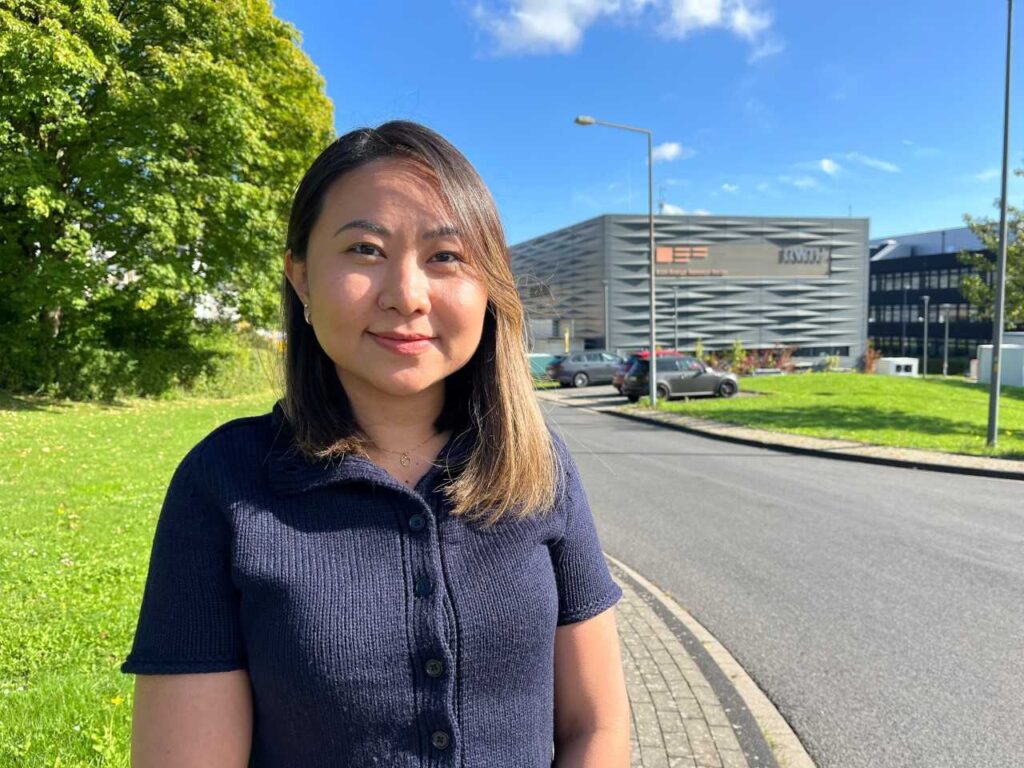
Foto: Judith Peschges
An die RWTH kam sie dank Professor Antonello Monti, der im Rahmen des Henriette-Herz-Scouting-Programms der Humboldt-Stiftung ihre Bewerbung unterstützte.
„Die RWTH und Professor Monti genießen in meiner Forschungscommunity einen exzellenten Ruf“, sagt Dr. Phyo.
Die Ingenieurin hat ihren Bachelor an der Technischen Universität Mandalay in Myanmar und ihren Master sowie ihre Promotion an der Thammasat Universität in Thailand abgeschlossen. Forschungsaufenthalte führten sie nach Südkorea, Kanada, in die Schweiz und zuletzt an die Technische Universität Eindhoven, wo sie bis Ende 2024 als Postdoktorandin tätig war.
Mit ihrem Fachwissen aus Datenwissenschaft und Energietechnik trägt Dr. Phyo dazu bei, die Integration erneuerbarer Energien in zukünftige Stromnetze sicherer und effizienter zu gestalten – ein bedeutender Schritt auf dem Weg zu einer nachhaltigen Energiezukunft.
Vortrag: Digitalisierung in der Landtechnik – viel weiter als Sie denken
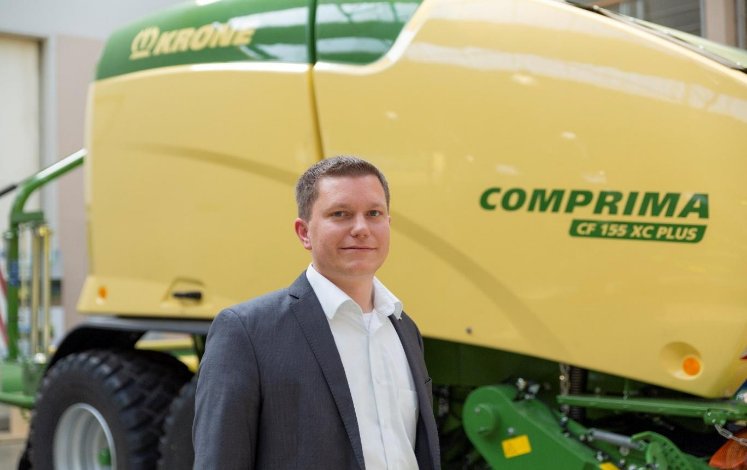
© KRONE Group / Jan Horstmann
Moderne Landmaschinen sind heute Hightech-Wunderwerke: Mit leistungsfähiger Sensorik, Satellitennavigation und KI-basierten Fahrerassistenzsystemen verbessern sie die Präzision und Effizienz in der Landwirtschaft erheblich. Jan Horstmann, Geschäftsführer Konstruktion & Entwicklung der KRONE Gruppe, gibt in seinem Vortrag einen umfassenden Einblick in diese Technologien und zeigt praxisnahe Beispiele. Diskutieren Sie mit und erfahren Sie, wie Digitalisierung die Landtechnik nachhaltig verändert.
Die Veranstaltung findet am 11.09.2025 von 17:00 bis 18:30 Uhr online über Zoom statt.
Das Video zur Veranstaltung wird im Anschluss veröffentlicht.
Die Zukunft der Batterietechnologie: Revolution durch KI
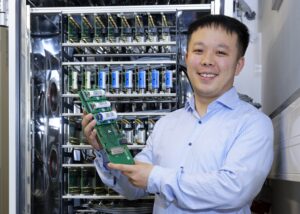
Prof. Weihan Li . © Peter Winandy
Innovative Batterieforschung an der RWTH Aachen
Juniorprofessor Weihan Li revolutioniert an der RWTH Aachen die Batterieforschung, indem er KI‑gestützte Testverfahren entwickelt, die bereits in der Produktionsphase präzise Aussagen über die zukünftige Leistungsfähigkeit und Lebensdauer von Batteriezellen ermöglichen.
Mithilfe modernster Technologien wie digitalen Zwillingen, datenbasierten Modellen und automatisierten Diagnoseverfahren transformiert sein Ansatz das traditionelle Batteriemanagement in ein proaktives System, weg von reinen Beobachtungen hin zu vorausschauenden Strategien.
Verkürzte Entwicklungsprozesse und nachhaltige Innovation
Im Kern seiner Forschung steht das Ziel, Entwicklungszyklen signifikant zu verkürzen, Produktionskosten zu senken und gleichzeitig die Nachhaltigkeit über den kompletten Batterielebenszyklus zu steigern. Prof. Li bringt es dabei auf den Punkt:
„Letztlich geht es darum, eine gute, günstige Batterie schneller zu entwickeln und die Nachhaltigkeit des Batterielebenszyklus zu erhöhen.“
Die Symbiose von Künstlicher Intelligenz und Elektrochemie
Schon früh erkannte Li, dass die Kombination aus Künstlicher Intelligenz und Elektrochemie der Schlüssel zur Zukunft der Batterieindustrie ist. Dieses Verständnis treibt ihn an, innovative Lösungen voranzutreiben:
„Mir wurde klar: Das ist die Zukunft. Seitdem arbeite ich daran, KI und Elektrochemie zu verbinden.“
RWTH Aachen als Innovationsmotor
Für Prof. Li ist die RWTH Aachen mehr als nur ein Forschungsstandort. Sie bietet ein inspirierendes Umfeld, das junge Talente durch starke Netzwerke und einen ausgeprägten Innovationsgeist fördert. Der enge Austausch mit der Industrie untermauert den Bedarf an modernen Batterielösungen und sichert gleichzeitig einen bedeutenden Anteil an Fördermitteln.
Datenbasierte Modellierung als Schlüsselkomponente
Die umfangreiche Datenbasis der RWTH-Infrastruktur ist ein zentraler Pfeiler in der präzisen KI-Modellierung. Diese essenzielle Ressource sichert nicht nur den Erfolg der Forschung, sondern bildet auch den Grundstein für hochentwickelte Analyseverfahren:
„Diese Datenbasis ist für unsere Modellierung mit KI essenziell.“
Proaktives Batteriemanagement
Abschließend zielt Li’s Ansatz darauf ab, nicht nur den Alterungsprozess von Batteriezellen zu beobachten, sondern aktiv einzugreifen, lange bevor die Zellen ihre maximale Leistungsgrenze erreichen. Damit steht fest:
„Wir wollen nicht nur wissen, wie Batterien altern. Wir wollen eingreifen können – bevor sie überhaupt altern.“
Die fortschrittlichen, KI-gestützten Methoden von Prof. Li an der RWTH Aachen ermöglichen schnellere, kostengünstige und nachhaltige Batterielösungen. Diese bahnbrechende Studie legt einen neuen Maßstab für die Entwicklung von Batterien fest und untermauert Europas Führungsposition im Hinblick auf den Energiewandel.
Quelle: Mit KI zur besseren Batterie | RWTH Aachen University
Humboldt-Stipendiatin am E.ON Energy Research Center

Dr. Ameze Big-Alabo von der University of Port Harcourt in Nigeria forscht am Lehrstuhl Automation of Complex Power Systems der RWTH Aachen. © Judith Peschges
Die Elektrotechnikerin Ameze Big-Alabo verstärkt ab April 2025 im Rahmen eines Humboldt-Stipendiums das internationale Forschungsteam um Professor Antonello Monti im Fachbereich Mikrogrids.
Im Rahmen des Henriette Herz-Scouting-Programms der Humboldt-Stiftung setzte sich Professor Antonello Monti, Leiter des Instituts und Inhaber des Lehrstuhls Automation of Complex Power Systems (ACS), erfolgreich dafür ein, die Wissenschaftlerin für das E.ON Energy Research Center zu gewinnen. Ameze Big-Alabo, eine international erfahrene Forscherin, wechselte daraufhin von der University of Port Harcourt in Nigeria an die RWTH Aachen University.
Sie ist auf Windkraftanlagen, Solarpaneele und die Kombination beider Technologien in lokalen Energienetzen spezialisiert und verfolgt das Ziel, sogenannte Mikrogrids noch effizienter, robuster und nachhaltiger zu machen. Mikrogrids sind kleine lokale Energienetzwerke, die sowohl vom allgemeinen Stromnetz getrennt als auch mit diesem verbunden betrieben werden können. Für die Weiterentwicklung dieser Systeme sind komplexe Entwürfe und mathematische Modellierungen erforderlich, die reale Mikronetze abbilden. Dazu gehören Optimierung, Energiemanagement und Fehlererkennung.
„ Mein Forschungsgebiet passt hervorragend zu den Schwerpunkten des Instituts in Aachen. Ich komme gut voran und bisher läuft alles nach Plan“, lautet die erste Bilanz der Wissenschaftlerin.
Ein wesentlicher Teil ihrer Arbeit sind computergestützte Simulationen. Dabei analysiert sie, wie sich unterschiedliche Energiequellen optimal kombinieren lassen. Bei der Modellierung von Solarpaneelen berücksichtigt sie zahlreiche Faktoren, darunter Sonnenintensität, Außentemperatur, geografische Lage und Paneelgröße. Im Anschluss an die Simulationen erfolgen experimentelle Tests. Neben der intensiven Arbeit am Computer ist ihr der persönliche Austausch im Forschungsteam wichtig.
„Ich schätze die internationale Gemeinschaft, die hier herrscht. Es arbeiten viele Menschen unterschiedlicher Herkunft am Institut und mit allen verstehe ich mich gut“, sagt die Forscherin.
Ameze Big-Alabo kann auf umfangreiche internationale Erfahrung zurückblicken: Sie erwarb ihren Bachelor- und Masterabschluss in Elektrotechnik in Nigeria und erhielt anschließend ein Stipendium für ein Masterstudium im Fach Advanced Control Systems Engineering an der University of Manchester. Dort gewann sie den Neil Munro Prize für die beste Masterarbeit in ihrem Fachgebiet. Es folgte ein weiteres Stipendium für die Promotion an der University of Glasgow in Schottland.
Auch über das Ende ihres Forschungsaufenthalts im April 2026 hinaus erhofft sich die Wissenschaftlerin eine dauerhafte Zusammenarbeit mit der RWTH. Nach ihrer Rückkehr wird sie ihre Lehrtätigkeit in Nigeria wieder aufnehmen. Ihr langfristiges Ziel ist es, zur Verbesserung der Energieversorgung in ihrem Heimatland beizutragen.
„Energieerzeugung ist eine der größten Herausforderungen bei uns. Mit dem Wissen, das ich bei meinen Forschungsaufenthalten gewinne, will ich eine nachhaltige Entwicklung anstoßen“, erklärt Ameze Big-Alabo.
Das Humboldt-Forschungsstipendium richtet sich an promovierte und überdurchschnittlich qualifizierte Forschende aus der ganzen Welt und allen Fachrichtungen. Es ermöglicht in verschiedenen Stadien der wissenschaftlichen Laufbahn, persönliche Forschungsvorhaben in Kooperation mit Gastgeber:innen einer Forschungseinrichtung in Deutschland durchzuführen. Das monatliche Stipendium beträgt 3.200 Euro zzgl. Nebenleistungen. Es kann für eine Dauer zwischen sechs und 18 Monaten beantragt werden und ist auf bis zu drei Aufenthalte innerhalb von drei Jahren aufteilbar.
Das Henriette Herz-Scouting-Programm ermöglicht es namhaften und gut vernetzten Wissenschaftler:innen, ihr Team um exzellente Humboldt-Forschungsstipendiat:innen zu erweitern. Bei der Nominierung der Stipendiat:innen werden individuelle Lebens- und Bildungswege – auch und gerade hinsichtlich Chancengerechtigkeit und Barrierefreiheit – berücksichtigt.
Hier finden Sie weitere Informationen zum Humboldt-Forschungsstipendium sowie zum Henriette Herz-Scouting-Programm.
Vortrag – Batterien für die Energiewende:
Exponentielles Marktwachstum, Preissenkungen als Game Changer – und was kommt neben und nach der Lithium-Ionen Batterie?
Prof. Dr. Dirk Uwe Sauer, ISEA-Institut der RWTH Aachen Mittwoch 9. 4. 2025, 17:00-18:30,
Eintritt frei, Vortrag/Diskussion Zoom, später Video
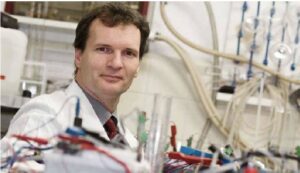 Der Ausbau von stationären Energiespeichern als Element des Stromversorgungssystems nimmt in Folge eines unerwartet starken Rückgangs der Kosten und Preise für Lithium-Ionen-Batteriezellen erheblich zu. Weltweit wächst auch der Markt für Elektrofahrzeuge weiter stark an. In China wurden letztes Jahr rund 50% der Neufahrzeuge als Elektrofahrzeuge abgesetzt. Nicht neue Technologien, sondern Preissenkungen sind der Schlüssel zu diesen Entwicklungen. Im Vortrag werden wir Ursachen für die Preissenkungen und Konsequenzen insbesondere für den Aufbau einer eigenen Batteriezellfertigung in Europa diskutieren.
Der Ausbau von stationären Energiespeichern als Element des Stromversorgungssystems nimmt in Folge eines unerwartet starken Rückgangs der Kosten und Preise für Lithium-Ionen-Batteriezellen erheblich zu. Weltweit wächst auch der Markt für Elektrofahrzeuge weiter stark an. In China wurden letztes Jahr rund 50% der Neufahrzeuge als Elektrofahrzeuge abgesetzt. Nicht neue Technologien, sondern Preissenkungen sind der Schlüssel zu diesen Entwicklungen. Im Vortrag werden wir Ursachen für die Preissenkungen und Konsequenzen insbesondere für den Aufbau einer eigenen Batteriezellfertigung in Europa diskutieren.
Darüber hinaus soll aber auch der Stand von Alternativen zu Lithium-Ionen-Batterien diskutiert werden, namentlich Lithium-Titanat-, Festkörperelektrolyt-, Lithium-Schwefel- und Natrium-Ionen-Batterien. Die Technologien können höhere Leistungen, geringeres Gewicht oder den Ersatz von raren bzw. teureren Rohmaterialien bringen und sind als Alternativen und Ergänzungen zum aktuellen Portfolio sehr interessant.
Kooperation mit: Fachgruppe Informatik der RWTH, FZ Jülich, Regionalgruppe der Gesellschaft für Informatik (RIA), Regionaler Industrieclub Informatik Aachen (Regina) und Gruppe Aachen des Deutschen Hochschulverbands
Über folgenden QR-Code erhalten Sie Zugang zu Webinar und Video

Neuromorphic Hardware: Kick-off event im Januar
Der Zukunftscluster NeuroSys der RWTH geht in die zweite Phase.
Zu Beginn diesen Jahres geht der Cluster4Future NeuroSys (Neuromorphe Hardware für autonome Systeme der Künstlichen Intelligenz) in die zweite Phase. Die Initiative Clusters4Future ist Teil der Hightech-Strategie 2025 der deutschen Bundesregierung und wird vom Bundesministerium für Bildung und Forschung gefördert.
Bei der Kick-off-Veranstaltung Ende Januar tauschten sich die mehr als 90 Teilnehmenden im Super C der RWTH Aachen über ihre Ideen und Technologien zur Entwicklung der neuromorphen Hardware aus.
Neuromorphe Systeme sind den Grundbausteinen des Gehirns, Neuronen und Synapsen, nachempfunden. Neuromorphe Hardware ist eine ressourcenschonende aber leistungsstarke Basis für energieintensive Rechercheoperationen der Künstlichen Intelligenz. Das Ziel ist es, auf der Grundlagenforschung der RWTH Aachen und dem Forschungzentrum Jülich aufbauend, eine Technologiebasis zu neuromorphen Bauelementen und Algorithmen zu schaffen. Koordinator des Zukunftsclusters ist Professor Max Lemme, Leiter des Lehrstuhls für Elektronische Bauelemente der RWTH Aachen.
Lernfähige neuromorphe KI-Chips könnten schon bald eine energieeffiziente Vor-Ort-Datenverarbeitung erlauben und bieten damit hoffnungsschaffende Vorraussetzungen für zukünftige Arbeitsweisen, Smart-City-Konzepte sowie das „Internet of Things“. Ebenfalls werden verschiedene Beiträge vom Autonomen Fahren über lernende Systeme bis hin zur Personalisieierten Medizin geliefte.
Die zweite Phase des Projektes ist für drei Jahre geplant und sieht die RWTH in Zusammenarbeit mit verschiedensten Expert aus Forschung und Industrie.
Weiter Informationen zum Projekt finden sich hier


